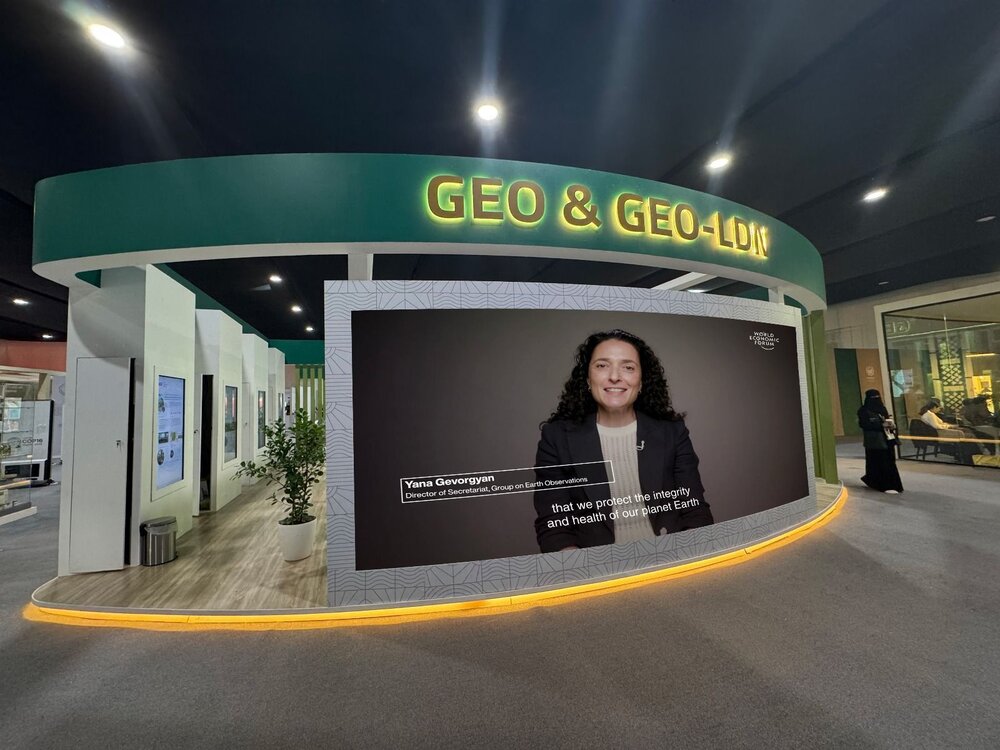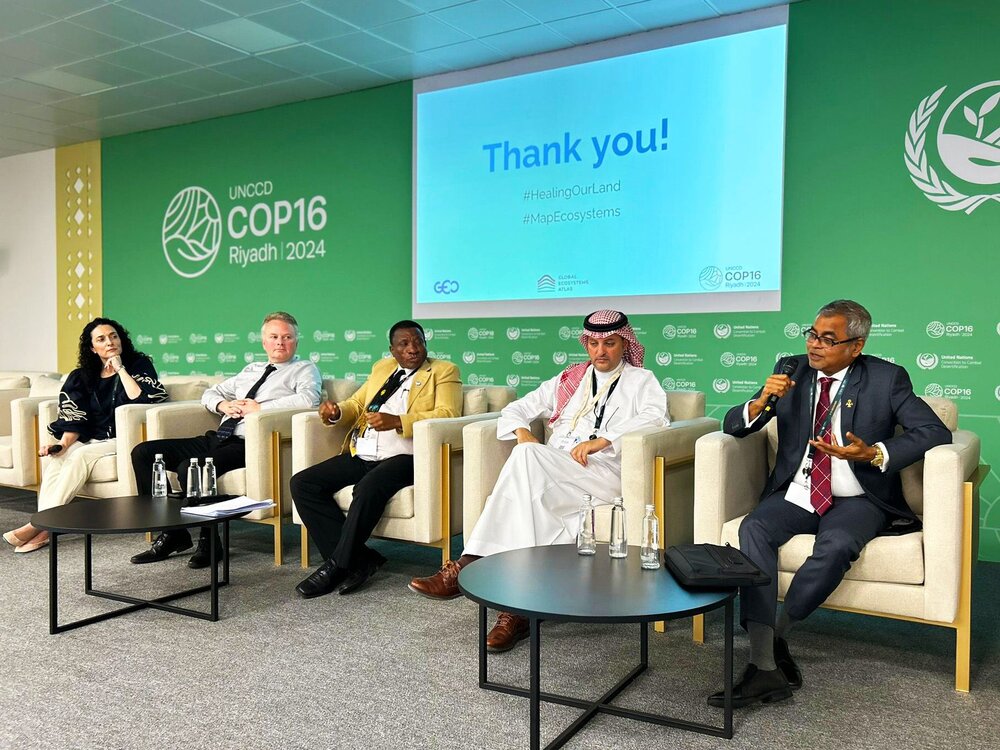UNCCD COP16: advancing land restoration and drought resilience

UNCCD COP16 marked a pivotal moment for advancing the global agenda on land degradation and biodiversity, highlighting the urgent need for multisectoral investments and innovations to combat land degradation.
With mounting urgency around planetary crises, GEO hosted two key events in Riyadh:
- High-level Interactive Dialogue: Healing our land through Science and Earth Intelligence
- Side event: Restoring landscapes: A Global Atlas for Ecosystem Resilience and Land Degradation Solutions

Announced at COP16 was a partnership between GEO’s Land Degradation Neutrality Initiative (GEO-LDN) and the United Nations University Institute for Environment and Human Security (UNU-EHS) to host the 2025 Global Dialogue Forum for Pacific SIDS, fostering peer exchange and support for achieving land degradation neutrality targets.
Additionally, Nichole Barger, Deputy Chief Scientist and Lead Global Scientist at The Nature Conservancy, and Co-chair of the Science-Policy Interface (SPI) – the scientific body of the UNCCD – urged the formation of a Global Science-Policy Alliance on Land to bridge gaps between intergovernmental science-policy bodies and enhance collaboration across the Rio Conventions.
A further announcement at UNCCD COP16 saw Saudi Arabia join the Group on Earth Observations (GEO), marking a significant step forward in global collaboration to combat land degradation and desertification.
"We are pleased to join GEO, reinforcing our international collaboration and advancing shared priorities through an impactful partnership," said H.E. Eng. Dr. Mohammed bin Yahya Al Sayel, President, General Authority for Survey and Geospatial Information, during the High-Level Interactive Dialogue that marked the official Science, Technology and Innovation Day at COP16.
Progress and key outcomes: towards COP17
COP16 centred on the escalating global drought crisis, with African nations strongly advocating for a protocol to address it. However, no agreement was reached on a legally binding global mechanism, and the decision was deferred to COP17 in Mongolia in 2026.
The conference reinforced the SPI’s dedication to tackling land degradation, welcoming outcomes from the High-Level Interactive Dialogue. A key decision tasked the Bureau of the Committee on Science and Technology, with support from the UNCCD Secretariat and the SPI, to explore forming a Global Science-Policy Alliance on Land.
A major milestone was the creation of an Indigenous Peoples Caucus to ensure representation of Indigenous knowledge and challenges within UNCCD processes, reflecting a commitment to inclusivity.
Financial pledges exceeded USD 12 billion, led by Saudi Arabia and others, supporting initiatives like the Riyadh Global Drought Resilience Partnership to aid 80 drought-vulnerable nations. Additionally, the AI-powered International Drought Resilience Observatory (IDRO) was launched, aiming to provide proactive insights by COP17.
Despite substantial progress in funding, inclusivity, and data-driven solutions, COP16 fell short of finalising a global drought agreement, leaving it a priority for COP17.